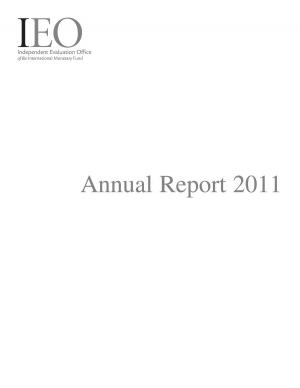Public Financial Management: Principal Issues in Small Pacific Island Countries
Business & Finance, Economics, Money & Monetary Policy, International Economics, Nonfiction, Social & Cultural Studies, Political Science, Politics, Economic Policy| Author: | Klaus-Walter Mr. Riechel | ISBN: | 9781455218516 |
| Publisher: | INTERNATIONAL MONETARY FUND | Publication: | February 1, 2002 |
| Imprint: | INTERNATIONAL MONETARY FUND | Language: | English |
| Author: | Klaus-Walter Mr. Riechel |
| ISBN: | 9781455218516 |
| Publisher: | INTERNATIONAL MONETARY FUND |
| Publication: | February 1, 2002 |
| Imprint: | INTERNATIONAL MONETARY FUND |
| Language: | English |
The paper discusses reform in public financial management in small, resource-constrained economies such as the Pacific island countries (PICs). It describes the efforts undertaken by PICs in the past and assesses their results. A principal conclusion is that reform in public financial management needs to be defined against the capacity of countries to sustain it at the national level. This requires a careful definition of priorities for action and the determination of appropriate pacing and sequencing of reform. In this decision, achievement of the imperatives of expenditure control and sustainability of deficits is typically more important than exploitation of the scope for efficiency gains promised by "cutting edge" public financial management systems.
The paper discusses reform in public financial management in small, resource-constrained economies such as the Pacific island countries (PICs). It describes the efforts undertaken by PICs in the past and assesses their results. A principal conclusion is that reform in public financial management needs to be defined against the capacity of countries to sustain it at the national level. This requires a careful definition of priorities for action and the determination of appropriate pacing and sequencing of reform. In this decision, achievement of the imperatives of expenditure control and sustainability of deficits is typically more important than exploitation of the scope for efficiency gains promised by "cutting edge" public financial management systems.















